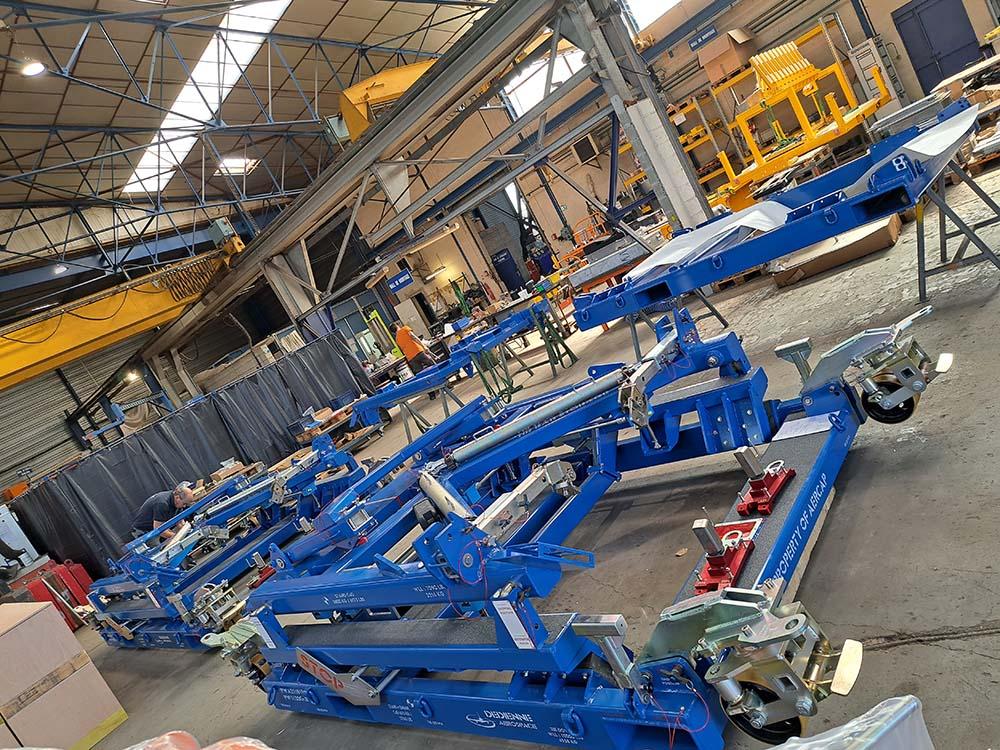
Industry stakeholders are raising concerns about an impending shortage of PW1100 and PW1500G engine stands and related support equipment in light of Pratt & Whitney’s geared turbofan engine troubles.
Navi Gupta, president at Dallas-based aviation asset trader N&P Enterprises, believes when these engines go for repair, there are not enough engine stands, bootstrap kits and related ground support equipment (GSE) in the market. Figures from Pratt suggest around 600 PW1100 powered aircraft will be grounded between 2024-26.
“There will definitely be a shortfall in available GSE for all the engines that will need to go through the shop. The number of stands needed cannot be manufactured in a short time and in the quantities required,” Gupta says.
Sources suggest Pratt & Whitney has pending orders with all the major stand manufactures but Gupta reckons these will be insufficient and not ready in time. He also expects the cost of existing stands to command a premium.
Gupta cites Iraqi Airways as a key example. “They need five or six PW1500G engine stands, but their budget is low, so they now have a couple of [Airbus] A220s parked. In fact, there are several aircraft parked with Pratt & Whitney engines either waiting on repair slots for the engine or stands to transport the engines or both,” he says. “It’s really going to be basic economics that will determine prices, but I can guarantee that the cost to lease a PW1100 stand will be high.”
Meanwhile, Guillaume Justamon, program director at aerospace tooling specialist Dedienne Aerospace, says the aftermarket has been strengthening capacity for geared turbofan (GTF) engines since 2022 in anticipation of the expected ramp-up of engine shop visits for the PW1100.
“Of course, we have revised the ramp-up and we adjusted the industrial production plan to be in a position to cover the whole quantity of PW1100 engine stands and associated nacelle equipment that will be needed,” he says.
Justamon believes the new ramp-up will be achieved by the first quarter of next year, including multiple production sites worldwide. He says the global engine removals are going to be scheduled, which Dedienne will support while ensuring that engine stand and support equipment availability will not disrupt the global plan.
“The availability of equipment is limited now due to a first wave of requirements, but it should not be an issue from the second quarter of 2024,” Justamon predicts.
Gupta says several lessors and aviation companies are putting emphasis on ‘certified’ GSE while the OEMs are struggling to keep up, so he foresees opportunities for unethical practices creeping into the market.
“There will always be bad apples and companies doing borderline unethical and shady activities,” he says. “If a company says the rental rate is $400 a day and there are no other stands available and you have an engine that must go to the shop, operators will have limited or no options.”
N&P Enterprises suggests a possible solution could be a parts manufacturer approval (PMA) stand which could be produced at factories that are already manufacturing stands.
Justamon argues unethical practices have proved to be a dead-end solution for the aviation industry. He sees more industry focus on compliance and verification of approved materials and equipment. “The high-runners are usually managed from stock, and the lead times would not exceed one or two months,” he says.
